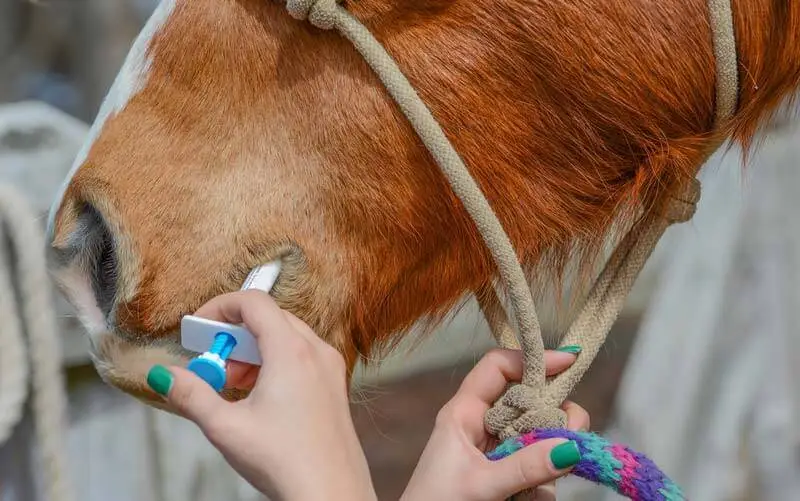What can I do if my horse has colic?
If you suspect your horse has colic, the most important thing you can do is take action immediately. Any colic episode, no matter how mild, has the potential to become life-threatening. Every step you take may directly influence the outcome for your horse.
Identifying colic can be challenging. At times, a horse may exhibit obvious signs of pain, while others may show only small changes in their behaviour. If you suspect your horse has colic – or any potential health problem – don’t just wait and see, do call your veterinarian for their advice.
A wait-and-see approach may result in unnecessary delays, which could put your horse’s life at risk. A phone consultation may be all that’s needed to save them from life-threatening illness and help you avoid costly veterinary bills.
Now that you understand the importance of calling your veterinarian, here’s a quick overview of the other steps you can take to support your horse when you suspect colic.
- Check your horse’s vital signs – You should be familiar with your horse’s normal vital signs, as in an increase in body temperature, for example, may be one of the first signs your horse is unwell. These vital statistics should be reported to your veterinarian. Vital signs consult of heart rate, breathing, temperature and abdominal sounds or gut sounds.
- Closely monitor your horse – Colic episodes can change from mild to severe in a matter of minutes. If you suspect colic and your veterinarian has been called, keep checking their condition every 15 minutes. If their condition worsens, your veterinarian can be summoned.
- Walk your horse – Only if recommended by your veterinarian and deemed safe to do so. Up to 60 minutes of brisk walking can help to clear colic. However, any movement higher in intensity should be avoided as horses with colic can tire easily.
- Withhold food and water – Allowing your horse to eat or drink could worsen the colic, leading to extreme situations such as stomach rupture. Consuming water will also interfere with procedures your veterinarian may need to perform, such as endoscopy.
- Avoid medicating your horse – This includes giving your horse an enema. After speaking with your veterinarian, they may need to examine your horse to determine the best treatment plan. Any medication should only be given with your veterinarian’s instruction.
- Keep your horse in a safe area – While you closely monitor your horse’s condition and/or await your veterinarian’s arrival, your horse should be confined to a small paddock or round yard for safety. If your horse is a mare with a foal at foot, keep her foal within sight but at a safe distance.
It is also extremely important to monitor faecal output as this can tell your vet a lot of important information.




